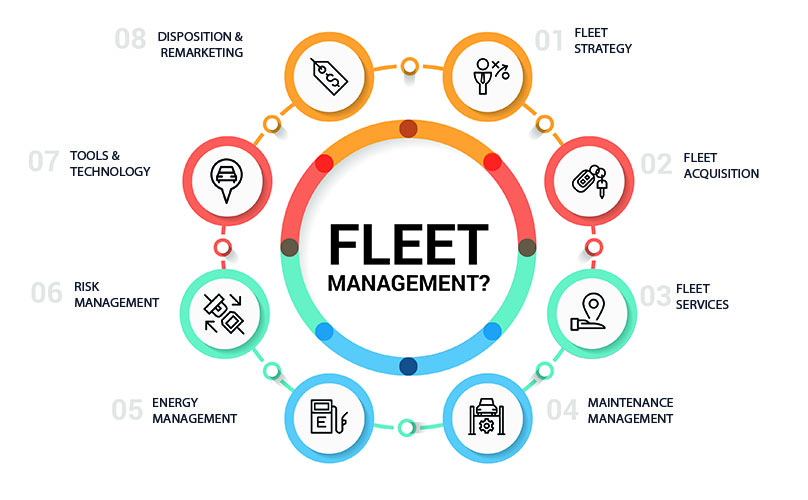
Image Source: Google
For small businesses that rely on a fleet of vehicles to operate, proper maintenance is crucial to ensure smooth operations and minimize downtime. Regular fleet maintenance not only extends the lifespan of your vehicles but also helps in avoiding costly repairs in the long run. In this article, we will discuss five essential fleet maintenance tips that every small business owner should follow to keep their vehicles in top condition.
1. Create a Maintenance Schedule
Setting up a regular maintenance schedule for your fleet vehicles can help you stay organized and ensure that all necessary maintenance tasks are completed on time. Here are some key points to consider:
- Include routine oil changes, tire rotations, brake inspections, and other general maintenance tasks in your schedule.
- Assign specific dates for each maintenance task and track them diligently to avoid missing any appointments.
- Consider creating a digital maintenance log or using fleet management software to keep track of maintenance schedules and records.
2. Train Your Drivers
Proper driver training is essential for maintaining the health and longevity of your fleet vehicles. Make sure your drivers are trained in safe and efficient driving practices, as well as basic vehicle maintenance tasks. Here are some tips for training your drivers:
- Provide training on fuel-efficient driving techniques to help reduce fuel costs and minimize wear and tear on the vehicles.
- Teach drivers how to perform basic vehicle inspections and alert you to any potential issues immediately.
- Emphasize the importance of reporting any accidents, no matter how minor, to prevent further damage to the vehicles.
3. Regularly Inspect Your Vehicles
Regular vehicle inspections are crucial for identifying potential problems early on and addressing them before they escalate into major issues. Here are some key points to consider when inspecting your fleet vehicles:
- Perform regular inspections of tires, brakes, lights, fluids, and other critical components to ensure they are in good working condition.
- Check for any signs of leaks, unusual noises, or vibrations that may indicate a problem with the vehicle.
- Keep detailed inspection records for each vehicle to track maintenance history and identify any trends or recurring issues.
4. Address Maintenance Issues Promptly
When minor maintenance issues are left unattended, they can quickly escalate into major problems that require costly repairs and downtime. It's important to address maintenance issues promptly to keep your fleet vehicles running smoothly. Here are some tips for addressing maintenance issues:
- Encourage drivers to report any issues they notice during their inspections or while driving the vehicles.
- Work with a trusted mechanic or maintenance team to prioritize and address maintenance issues in a timely manner.
- Schedule regular maintenance checks to catch any potential issues early and prevent them from worsening.
5. Invest in Quality Parts and Service
Using quality parts and services for your fleet vehicles can help ensure their reliability and performance over the long term. While it may be tempting to opt for cheaper alternatives, investing in quality parts and service can save you money in the long run by reducing the risk of breakdowns and costly repairs. Here are some tips for investing in quality parts and service:
- Source parts from reputable suppliers that offer warranties and guarantees on their products.
- Choose mechanics or service centers with experience working on fleet vehicles and a track record of providing reliable service.
- Regularly review and compare quotes from different suppliers and service providers to ensure you are getting the best value for your money.
By following these essential fleet maintenance tips, small business owners can ensure that their vehicles remain in top condition, minimize downtime, and maximize the lifespan of their fleet. Regular maintenance not only saves money in the long run but also helps in maintaining a safe and efficient fleet operation.
